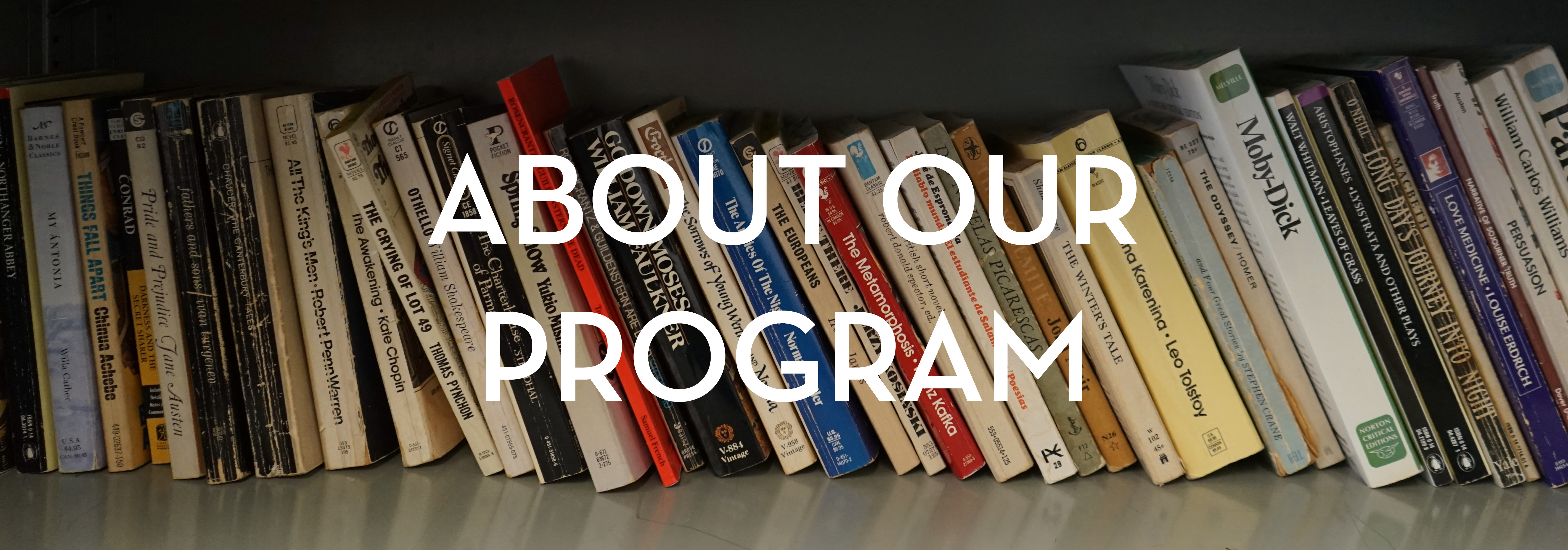
History
In April 2015, a panel of educators convened at Bennington to exchange ideas and practical advice around the topic of what liberal arts colleges can contribute to higher education in prisons, and what that contribution can mean for both the incarcerated and for the participating colleges. This convening led to the creation of the Prison Education Initiative (PEI) at Bennington College, which launched in fall 2015 at Great Meadow Correctional Facility in Comstock, New York.
Since PEI’s inception, more than 100 students at Great Meadow have taken courses in subjects that include literature, philosophy, social research, history of thought, architecture, political theory, social psychology, math, computer programming, Latin, and U.S. history.
Since 2020, PEI is also spearheading two initiatives aimed at providing educational opportunities to underserved prison populations. We are building out a more robust scholarly infrastructure to support continuing education among those serving life sentences (a group that comprises 15% of the prison population in America). In addition, we are also building out a new program of individualized tutoring to help bridge the gap between a GED and the expectations of a liberal arts classroom.
Academics
The Prison Education Initiative (PEI) provides classroom-based courses taught by Bennington College faculty at Great Meadow Correctional Facility. Following the Bennington seminar model, these classes consist entirely of lecture, instruction, in-class discussion, and regular assessment of student progress. The basic curriculum for all PEI students includes courses in philosophy, literature, math, history, and social science. Students develop collegiate-level skills that include the ability to convey complex ideas in both oral and written work, reading and comprehension of sophisticated texts, basic math skills, scientific and quantitative reasoning, and information literacy.
Courses
Art and Architecture
- Drawing (introduction, intermediate)
- A Survey of Architectural Concepts
- A History of Architecture
- History of Architecture: The American Public Bath 1890-1905
Literature, Writing, and Language
- Language and Thinking
- The Masculine Voice
- Literary Narrative: Facets of the Prism
- Literary Allusion
- The Victorian Novel
- Beautiful Lies
- Twentieth Century American Literature
- Twentieth Century American Literature, Part 2
- The Elements of Latin Grammar
- Literature: Conrad and Nabokov
- Aspects of the Novel
- The Art of the Essay
- War and Peace
- The Regional Novel
- Victor Hugo’s Les Misérables: The Novel of a Century
- The Year of Lear
- Vanity Fair
- Reading Moby Dick
- The Irish Novel (1890-1990)
- Homer: The Illiad
- Homer: The Odyssey
- Bleak House
- Creative Writing Workshop
- Henry V
- Indian and Pakistani Literature
- African American Literature in the 20th Century
- Creative Writing Seminar - Memoir
- Origins of the English Novel
- Proust and Powell
- Advanced Writing
Social Science, Research, and History of Thought
- Introduction to Social Research
- SHHH: The Social Construction of Silence
- The Atlantic World
- History of Thought: The Enlightenment
- History of Thought: The Renaissance
- History of Thought: Romanticism
- Nature in the Americas
- History of Thought - Books that Still Shape Our World
- Independent Studies: David Hume and Montesquieu
- Social Inquiry in an Age of Upheaval
- Orwell
- Independent Study: Reading Barbara Ehrenreich's Nickel and Dimed in 2022
- The Politics of Leadership
- How to do Research
- Major Religions of the World
Political Theory and History
- The Founding Documents of the United States of America
- Introduction to Political Theory
- Popular Rule and its Discontents
- African-American History: The Founding Era, 1760-1810
- The Black Jacobins: The Haitian Revolution in History and Memory
- Nat Turner’s Rebellion
- Global Environmental Politics
- Introduction to Political Ideologies
Mathematics, Science, and Computers
- Basic Algebra
- Algebra II
- Introduction to Statistics
- Pre-Calculus
- Calculus
- Patterns of Geometry
- Introduction to Computer Science
- Trigonometry
- Evolution
- Python Programming
- Computer Applications
- A History of Mathematics
- Introduction to Epidemiology
- Computer Spreadsheets
Partners
PEI is a member of the Consortium for the Liberal Arts in Prison at Bard College, and is made possible through collaboration with the New York State Department of Corrections and Community Supervision and Great Meadow Correctional Facility. The program is funded by Bennington College, the Mother Cabrini Health Foundation, the Harry J. Brown Jr. Foundation, the William and Mary Greve Foundation, the U.S. Department of Education (through the Second Chance Pell program), and other foundations and private donors.
The Bennington College Prison Education Initiative is accredited by the New England Commission of Higher Education.
People


